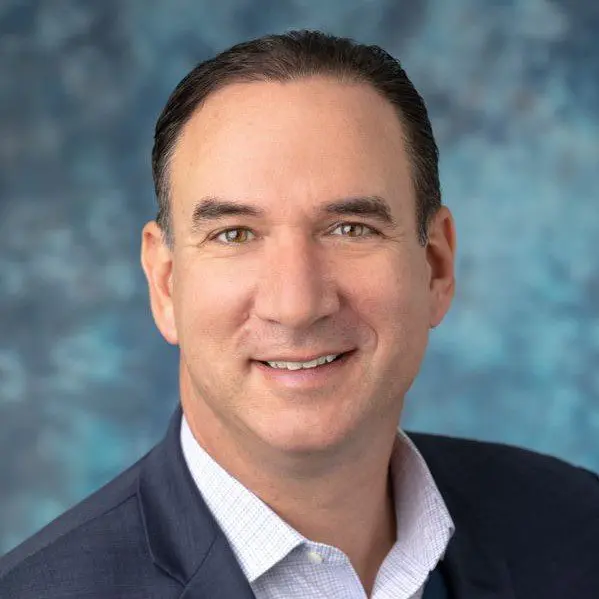
As health systems look to heal from two years of pandemic-related struggles and skyrocketing costs, new data reveals an even more troubling issue – disturbing levels of burnout across the entire healthcare ecosystem.
New research from Mayo Clinic Proceedings found that 63% of physicians report at least one symptom of burnout, a drastic increase from 46% in 2011. For organizations already navigating supply chain issues, increased operating costs, and COVID-19 surges, health systems risk losing thousands of clinicians as they report high-stress conditions and decreased job satisfaction.
Nearly one in five healthcare workers left their jobs during the pandemic. This number includes the hundreds of high-demand specialists who have left their field, like endocrinologists, forcing health systems and care teams to do more despite having less access to expert guidance.
In a concentrated effort to combat rising levels of burnout and retain physicians, hospitals have turned towards HR departments to offer competitive benefits to boost hiring and allocate resources. In other cases, hospitals turn to travel nurses to alleviate understaffing, improve workflows, and reduce time spent on inefficient tasks.
Hidden Source of Provider Burnout
While additional staff and better benefits go a long way, recent data points to a different source of frustration pervading the profession. The National Academy of Medicine found new evidence that suggests burnout is primarily caused by a disconnect between the fulfilling caretaker role and time-consuming, manual documentation burdens.
Many doctors chose to enter the field due to a strong desire to make a difference in the lives of others by caring for patients. But the last few years have seen issues such as heavy workloads, time pressures, administrative burdens, and staffing shortages drastically decrease the amount of face time physicians spend with their patients.
In addition, new research brings to light just how little time doctors have. As a result of the pandemic, calls from patients to physicians’ closed messaging systems increased by 157%. Between administrative demands and multiple patients, doctors have less time to spend educating patients and addressing concerns. In order to stop the burnout cycle and increase job satisfaction, organizational leadership is turning to technology.
Provider Support from Clinical Decision Software
Data shows that implementing technology, like clinical decision support software (CDSS), can decrease physician documentation burdens by streamlining workflows and providing data that leads to better patient outcomes and more patient face time. Yet, many hospitals still rely on outdated, manual methods of processing and recording data to inform patient care.
For many conditions, like diabetes, medication dosing protocols are dependent on complex, manual calculations prone to dangerous errors. They also rely on cumbersome paper protocols and data inputs for other systems like the EHR. These outdated methods take away valuable patient face time that doctors could engage in when new tools and technology are implemented into their care strategy.
If hospitals know that time could be better spent interacting with patients and families and ongoing education, why have so many failed to implement tech solutions? While no one hospital is the same, many hospitals display inertia, fearful of changes that occur when workflows are altered.
For organizations searching for ways to reduce process burden on their clinicians and drive patient safety improvements, the ideal CDSS will provide a variety of features, including
- Seamless Integration With EHR: To ensure a smooth and quick implementation, the ideal CDSS will easily integrate into a hospital’s EHR system without needing to factor in additional IT resources. A digital solution should also offer personalized integration with ongoing support, feature enhancements and updates.
- Clinical Dosing Decision Support: FDA-cleared dosing calculators can improve patient outcomes and reduce the burden on providers who often resort to manual, time-intensive calculations prone to medication errors. Such technology can unite care teams such as nurses, specialists, pharmacists, and hospital leadership.
- Advanced Analytics and Reporting: Advanced analytics and reporting capabilities will provide clinicians insight into desired KPIs, metrics and performance over time in order to ensure best practices are being maintained.
- Surveillance Monitoring Systems: With surveillance and at-risk patient monitoring systems continuously analyzing patients in real time, physicians and care teams can proactively identify at-risk patients and make plans for care, reducing preventable medication errors, and other potentially harmful events.
Through a comprehensive implementation of clinical decision support software, staffing, benefits and more, health systems can improve physician satisfaction while improving key markers of patient safety. For example, when discussing their implementation of a clinical decision support tool for automated IV insulin titration, Sentara Healthcare’s Dr. Courtenay Harrison Jr. states, “it was really a life changer for us, not having to be called every hour of the night when you had a patient in diabetic ketoacidosis on IV insulin.” It’s these immediate outcomes that give providers the tools they need to reduce the constraints on physicians.
Addressing widespread burnout among physicians is not a one size fits all process. However, it begins with long-term systemwide solutions that enable teams to advocate for their patients and prioritize care over non-value-added documentation demand.
About Jordan Messler, MD SFHM, FACP
Jordan Messler, MD, SFHM, FACP is the Chief Medical Officer with Glytec. He trained in internal medicine at Emory University in Atlanta and subsequently served as an academic hospitalist at Emory University for several years after residency. He is the former medical director for the Morton Plant Hospitalist group in Clearwater, Florida (serving BayCare Health), where he continues to work as a hospitalist. He is the current physician editor for the Society of Hospital Medicine’s (SHM) blog, The Hospital Leader. In addition, he previously chaired SHM’s Quality and Patient Safety Committee and has been active in several of their national mentoring programs, including Project BOOST and Glycemic Control. He has talked at national conferences on a variety of topics such as teamwork in the hospital, quality and patient safety, the history of hospitals and mentoring quality improvement projects.
